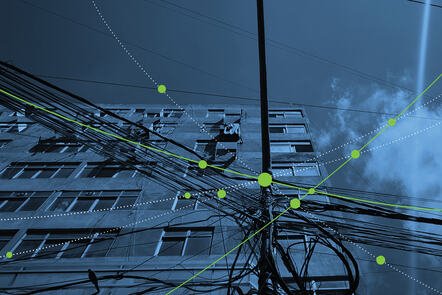
UCL (University College London)
- Start Date: 03 May, 2021
- 3 weeks
- Study Content: Videos
Learn the techniques to help communities move towards a renewable energy future and apply them to make changes in your community.
Course Fee: Free
Certificate Cost: See Fees and Eligibility
Course Description
This course is made available through the eLearnAfrica and FutureLearn partnership.
Explore sustainable solutions to address the challenges of energy access
There are 789 million people around the world who live without access to electricity. In addition, 2.8 billion people globally have no access to clean and safe cooking fuels and technologies.
On this three-week course, you’ll explore the meaning of energy access and how to overcome its challenges to provide safe and clean energy for communities around the world.
Since the launch of the United Nations 17 Sustainable Development Goals (SDGs), the international community has been working tirelessly to address the energy access challenge. But this cannot be achieved unless we find ways to inspire and support entire communities to transition to renewable energy.
To do this, you’ll identify the right technological solutions and the many sides to renewable energy, including technology, behaviour change, economics, and community dynamics.
Examine the use of renewable energy sources
The course will help you address energy efficiency and how communities can save both money and energy with the right solutions.
Examining different business models, you’ll identify several renewable energy and off-grid community solutions, such as solar PV, wind, hydro, bio-gas, and even bio-electricity.
You’ll also analyse a mini-grid case study and look into household energy consumption to understand where savings can be made.
Understand the importance of community engagement
When addressing energy access, it’s vital to consider the ways this can impact the wider community.
You’ll examine case studies and learn innovative techniques to promote community engagement and help you make a change in your community.
Finally, you will take part in a peer review of your plans to help your community move closer to a renewable energy future.
This course is designed for anyone with an interest in renewable energy transitions. You could be an aspiring community activist or leader, a professional working in renewable energy, or a government professional with a role in renewable energy.
Certificate cost may vary. You will be redirected to the host page for cost and payment options.
UCL (University College London)
UCL was founded in 1826. It was the first English university established after Oxford and Cambridge, the first to open up university education to those previously excluded from it, and the first to provide systematic teaching of law, architecture and medicine.
UCL is among the world’s top universities, as reflected by performance in a range of international rankings and tables. UCL currently has over 35,000 students from 150 countries and over 11,000 staff. UCL’s annual income is more than £1 billion.
This institution is available on eLearnAfrica through partnership with FutureLearn.
COLLABORATION POLICY
By enrolling in a course on or through eLearnAfrica, you are joining a special worldwide community of learners. The aspiration of eLearnAfrica is to provide anyone with an internet connection access to courses from the best universities and institutions in the world and to provide our learners the best educational experience internet technology enables. You are a part of the community that will help eLearnAfrica achieve this goal. eLearnAfrica depends upon your motivation to learn the material and to do so with honesty and academic integrity. In order to participate in eLearnAfrica, you must agree to the Honor Code below and any additional terms specific to a class.
ELEARNAFRICA HONOR CODE PLEDGE
By enrolling in a course, program, or degree hosted on the eLearnAfrica App or Site, I agree that I will:
-
Complete all tests and assignments on my own, unless collaboration on an assignment is explicitly permitted.
-
Maintain only one user account and not let anyone else use my username and/or password.
-
Not engage in any activity that would dishonestly improve my results, or improve or hurt the results of others.
-
Not post answers to problems that are being used to assess student performance.
-
Abide by any and all requirements of the eLearnAfrica Participants as may regard the expectations of civil or academic behavior or of community standards.
VIOLATIONS
If you are found in violation of the Terms and Conditions or Honor Code, you may be subject to one or more of the following actions:
-
Receiving a zero or no credit for an assignment;
-
Having any certificate earned in the course withheld or revoked;
-
Being unenrolled from a course, learning program or degree program; or
-
Termination of your use of the App and/or Site.
-
Additional actions may be taken at the sole discretion of eLearnAfrica and eLearnAfrica course providers.
No refunds will be issued in the case of any corrective action for such violations.
Honor code violations will be determined at the sole discretion of eLearnAfrica, the Partners, or Members. You will be notified if a determination has been made that you have violated this honor code and you will be informed of the corresponding action to be taken as a result of the violation.
CHANGING THE HONOR CODE
Please note that we review and may make changes to this Honor Code from time to time. Any changes to this Honor Code will be effective immediately upon posting on this page, with an updated effective date. By accessing the App and/or Site after any changes have been made, you signify your agreement on a prospective basis to the modified Honor Code and any changes contained therein. Be sure to return to this page periodically to ensure familiarity with the most current version of this Honor Code.
Effective Date: September 22, 2016
